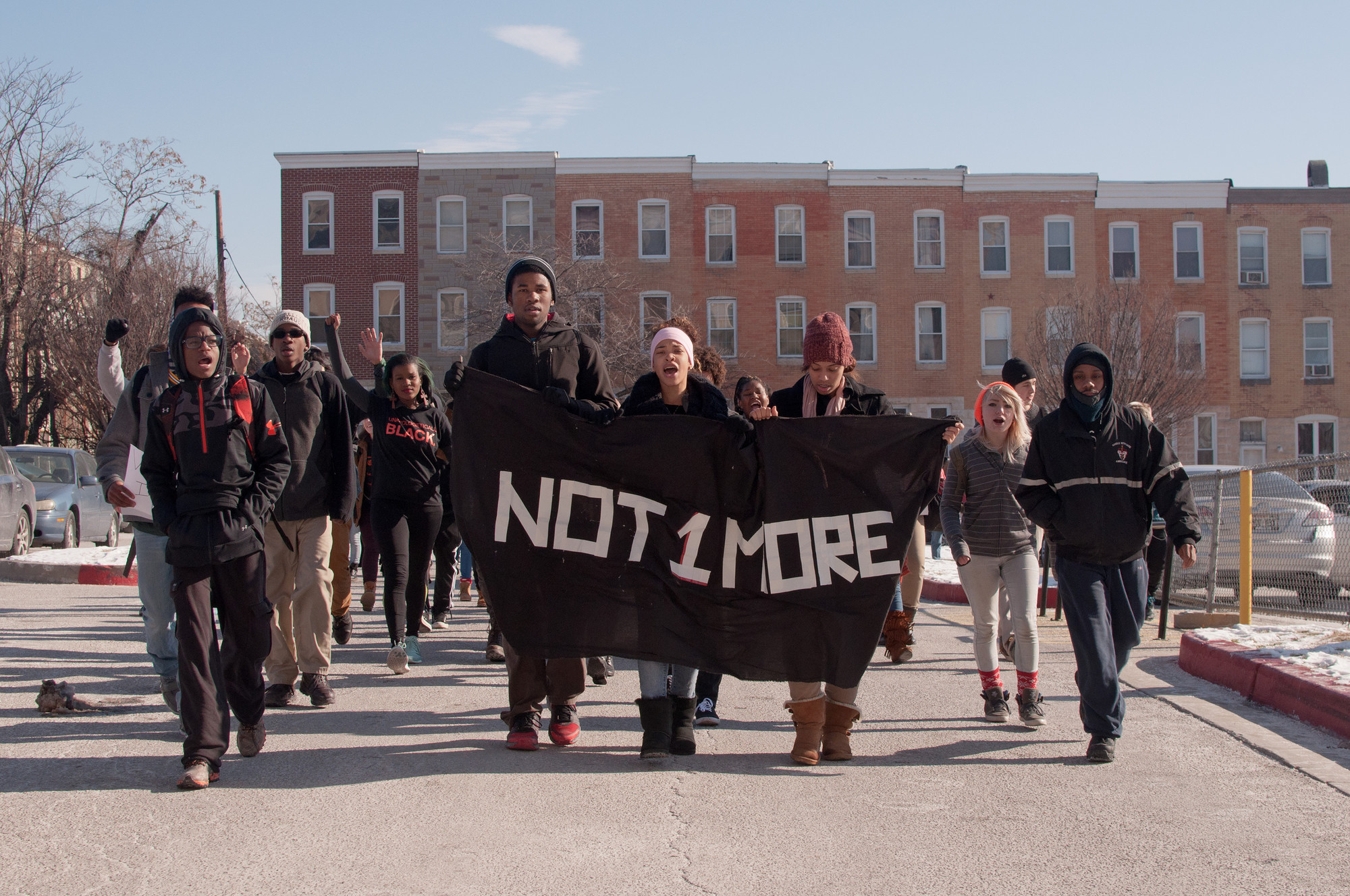
Racial justice messaging in the aftermath of Freddie Gray's death Bryan Vana / AFSC
What should we say in the aftermath of violence?
Institutional racism is at the core of the brutal violence we all witnessed last week. It's as important to talk about that fact now as it ever was, but sometimes it's hard to know what to say or how to say it. Here are six ways that anyone can use messaging to advance racial justice:
- Start from shared values, emphasize instituional racism, and make sure you tailor your messages to your audience. This is just a fraction of the excellent messaging guidance from the Opportunity Agenda's Helvetica Bold.
- Stay on message, writes activist and UCC minister Peter Laarman in a reflection on the coverage of Dallas for Religious Dispatches. Keep your messages focused on the root causes of violence: centuries of insitutional racism.
- Don't say "all lives matter" especially if you are white, writes Black Lives Matter organizer Robbie Clark. "What we're saying right now is that all lives will actually matter when Black lives matter - and Black lives don't matter right now."
- Do "go beyond saying #BlackLivesMatter," recommends #BlackLivesMatter co-creator Alicia Garza to white people in particular. "Beyond saying #BlackLivesMatter, I want to hear more about what [white people] will do to ensure a world where BlackLivesMatter - and that means weighing in" on things like full citizenship for all, economic justice, and so forth.
- Don't use jargon, do control the framing of the conversation, and always remember that the point of your messaging is to get others "to see, act and think differently," Colorlines' Terry Keleher writes. He was referring to conversations at a Thanksgiving dinner table, but the same advice goes for summer cook-outs too.
- Remember that we can all "[move] the race conversation forward," even people who initially disagree with us. Race Forward shows us how through its excellent research and messaging tips for advancing racial justice.
How have you been talking about racism? Tell us about it in the comments.